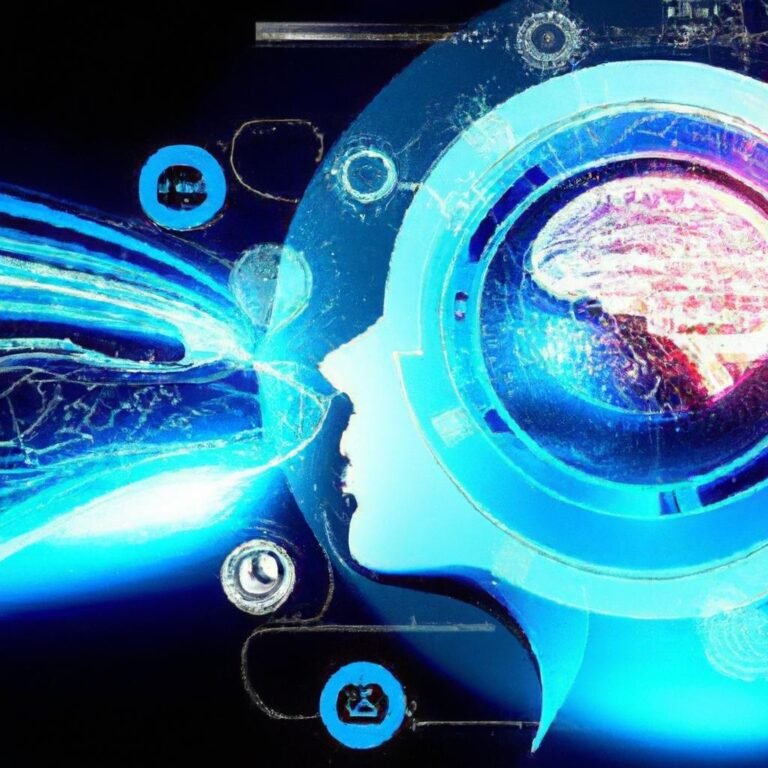In an era where technology permeates every aspect of our lives, artificial intelligence (AI) stands at the forefront of revolutionizing the entertainment industry. From the shimmering lights of Hollywood to the vibrant world of independent gaming, AI software is not just a tool but a transformative force reshaping how stories are told, experiences are crafted, and audiences are engaged. As we delve into this captivating intersection of creativity and technology, we will explore how AI is enhancing everything from scriptwriting and film production to personalized content delivery and gaming experiences. Join us as we uncover the profound implications of AI software on entertainment, highlighting both the innovative advancements and the ethical considerations that come with this digital renaissance.
Table of Contents
- Exploring the Transformative Role of AI in Content Creation
- Enhancing User Experience Through Personalized Recommendations
- Addressing Ethical Considerations in AI-Driven Entertainment
- Future Trends: What’s Next for AI in the Entertainment Industry
- Key Takeaways
Exploring the Transformative Role of AI in Content Creation
The advent of AI has ushered in a new era in content creation, profoundly altering how stories are conceived, produced, and consumed. Platforms powered by machine learning algorithms can analyse vast datasets to predict trending topics and audience preferences, allowing creators to refine their content strategies with unprecedented accuracy. With the assistance of AI-driven tools, creatives are now able to:
- Generate Article Ideas: AI can suggest innovative themes and angles based on current audience engagement data.
- Enhance Editing Processes: Smart editing tools improve language quality and ensure consistency in tone and style.
- Create Personalized Content: By analyzing user behavior, AI can help tailor content to individual preferences, increasing engagement.
Moreover, AI doesn’t just streamline efficiency; it often inspires novel forms of creativity. Artists and writers are leveraging AI to develop interactive narratives and immersive experiences that weren’t possible before. The integration of AI in scriptwriting, music composition, and video production is transforming how entertainment is crafted. Consider the following ways in which AI is shaping the future of creative industries:
| AI Application | Impact on Content Creation |
|---|---|
| Scriptwriting Assistants | Generate plot ideas and character dialogues, reducing writer’s block. |
| Music Composition | Facilitate the creation of original scores and soundtracks tailored to specific moods. |
| Visual Art Generation | Enable artists to explore new styles and techniques through collaborative AI tools. |
Enhancing User Experience Through Personalized Recommendations
In the age of digital entertainment, the ability to provide tailored content recommendations can significantly enhance user satisfaction and engagement. By analyzing users’ viewing habits, preferences, and even mood, AI software can generate a streamlined entertainment experience, ensuring that viewers spend less time searching for content and more time enjoying it. Personalized recommendations are not just a convenience; they create a sense of connection by suggesting titles that resonate with individual tastes. This personalization can result in:
- Increased Engagement: Users are more likely to watch content that aligns with their interests.
- Efficient Browsing: Reduced time spent searching leads to a smoother user experience.
- Higher Retention Rates: Satisfied viewers are more likely to return to the platform.
Moreover, the implementation of advanced algorithms allows platforms to refine recommendations further, ensuring that suggestions become increasingly accurate over time. Through user feedback loops and data collection, AI can adapt to trends and shifts in viewer behavior. Table 1 below illustrates some common methods utilized in deriving personalized recommendations:
| Method | Description |
|---|---|
| Collaborative Filtering | Analyzes user behavior and preferences to suggest content liked by similar users. |
| Content-Based Filtering | Recommends items similar to those a user has liked in the past, based on attributes. |
| Contextual Recommendations | Takes into account user context such as time, location, and device to tailor suggestions. |
Addressing Ethical Considerations in AI-Driven Entertainment
As AI technologies integrate deeper into the fabric of entertainment, several ethical considerations must be acknowledged. Content ownership becomes a pivotal issue; as AI generates music, art, or scripts, questions arise about who holds the copyright. Furthermore, the representation and inclusivity in AI-generated content require careful examination to ensure that diverse perspectives are included rather than marginalized. The following factors help navigate these complexities:
- Transparency: Clearly outlining AI’s role in content creation.
- Accountability: Establishing responsibility for AI-generated outputs.
- Bias Mitigation: Continuously assessing AI systems to reduce inherent biases.
Moreover, the potential for AI to manipulate consumer preferences introduces a layer of ethical dilemma. The effectiveness of targeted content can lead to addiction and overconsumption, raising concerns about mental health impacts. A table summarizing the positive and negative implications of AI-driven entertainment can provide clear insights:
| Positive Implications | Negative Implications |
|---|---|
| Enhanced creativity and innovation | Risk of homogenized content |
| Personalized user experiences | Potential privacy violations |
| Increased accessibility of entertainment | Manipulation of consumer behavior |
Future Trends: What’s Next for AI in the Entertainment Industry
As we look to the horizon of the entertainment industry, the convergence of artificial intelligence and creative expression is poised to reshape how stories are developed, produced, and consumed. One of the most promising trends is the personalization of content. Utilizing sophisticated algorithms, platforms will increasingly deliver tailored experiences to audiences based on their preferences and viewing history. This could manifest in several ways:
- Curated Recommendations: AI will drive smarter algorithms that predict viewer interests more accurately.
- Interactive Storytelling: Enhanced engagement through dynamic plotlines that change based on viewer choices.
- Virtual Production: AI-controlled environments reducing the cost and time of traditional filming.
Moreover, as generative AI continues to evolve, we may witness an entire genre of AI-generated content, from music to scripts that challenge the boundaries of traditional creativity. This raises important discussions about authorship and the role of human creators in the artistic process. Future developments may include:
- Automated Scriptwriting: AI applications will assist writers by generating plot ideas and developments.
- Music Composition: AI tools will create soundtracks that adapt to the emotional tone of scenes.
- Visual Effects:** AI will enhance post-production, allowing for more intricate designs and effects.
Key Takeaways
As we conclude our exploration of how AI software is revolutionizing the entertainment industry, it’s clear that this technological evolution is not just a trend but a monumental shift in the way we create, consume, and engage with content. From personalized viewing experiences to the rise of virtual reality and beyond, AI is shaping a future where creativity knows no bounds.
However, as we embrace these advancements, it’s essential to remain mindful of the ethical implications and potential challenges that come with them. The intersection of technology and art invites us to think critically about authorship, authenticity, and the role of human creativity in an increasingly automated world.
As we look ahead, the collaboration between humans and AI presents opportunities for unprecedented innovation, ensuring that entertainment continues to evolve in ways we have yet to imagine. We invite you to stay engaged in this dialogue, share your insights, and consider how you, too, can be part of this exciting transformation. The future of entertainment is not just being written; it’s being coded, and we can’t wait to see where this journey leads us.
Thank you for joining us in this exploration. Stay tuned for more insights into the intersection of technology and creativity, as we continue to navigate this thrilling landscape together.





